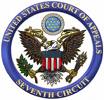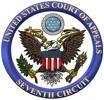Seventh Circuit Week in Review: Crook Impersonates Cop, Cop Impersonates Teenager
 The Seventh Circuit had only two new opinions in criminal cases last week, with both focusing on sentencing issues. The first, United States v. Abbas, clarified the harmless error doctrine as it relates to mistaken sentencing calculations. The second, United States v. Nagel, considered the constitutionality of a ten-year mandatory minimum for enticement of a minor. By some coincidence, both cases involved impersonation.
The Seventh Circuit had only two new opinions in criminal cases last week, with both focusing on sentencing issues. The first, United States v. Abbas, clarified the harmless error doctrine as it relates to mistaken sentencing calculations. The second, United States v. Nagel, considered the constitutionality of a ten-year mandatory minimum for enticement of a minor. By some coincidence, both cases involved impersonation.
In Abbas (No. 07-3866), the defendant was convicted of several crimes, including impersonating an FBI agent. Falsely claiming the power to make various immigration and criminal problems go away, Abbas tricked several desperate victims into paying him for assistance. A jury found him guilty of a number of charged offenses, but acquitted him of extortion under color of official right in violation of the Hobbs Act. Curiously, though, the district court judge sentenced Abbas based on the federal sentencing guideline for extortion under color of official right. (As I discussed with my Sentencing students just last week, the guidelines permit defendants to be punished for crimes of which they have been acquitted. Sound strange? You would not be alone in so thinking!)
On appeal, Abbas argued that “extortion under color of official right” only applies when someone who is actually a public official abuses his authority, and does not cover private citizens who are merely pretending to be public officials. In effect, Abbas argued that he was really only guilty of fraud, not the more serious offense of extortion. And, had he been sentenced for fraud, his guidelines range would have been only 15-21 months, instead of the actual 24-30 months.
The Seventh Circuit (per Judge Tinder) agreed . . . but still declined to order a resentencing. Abbas won the battle, but not the war.


